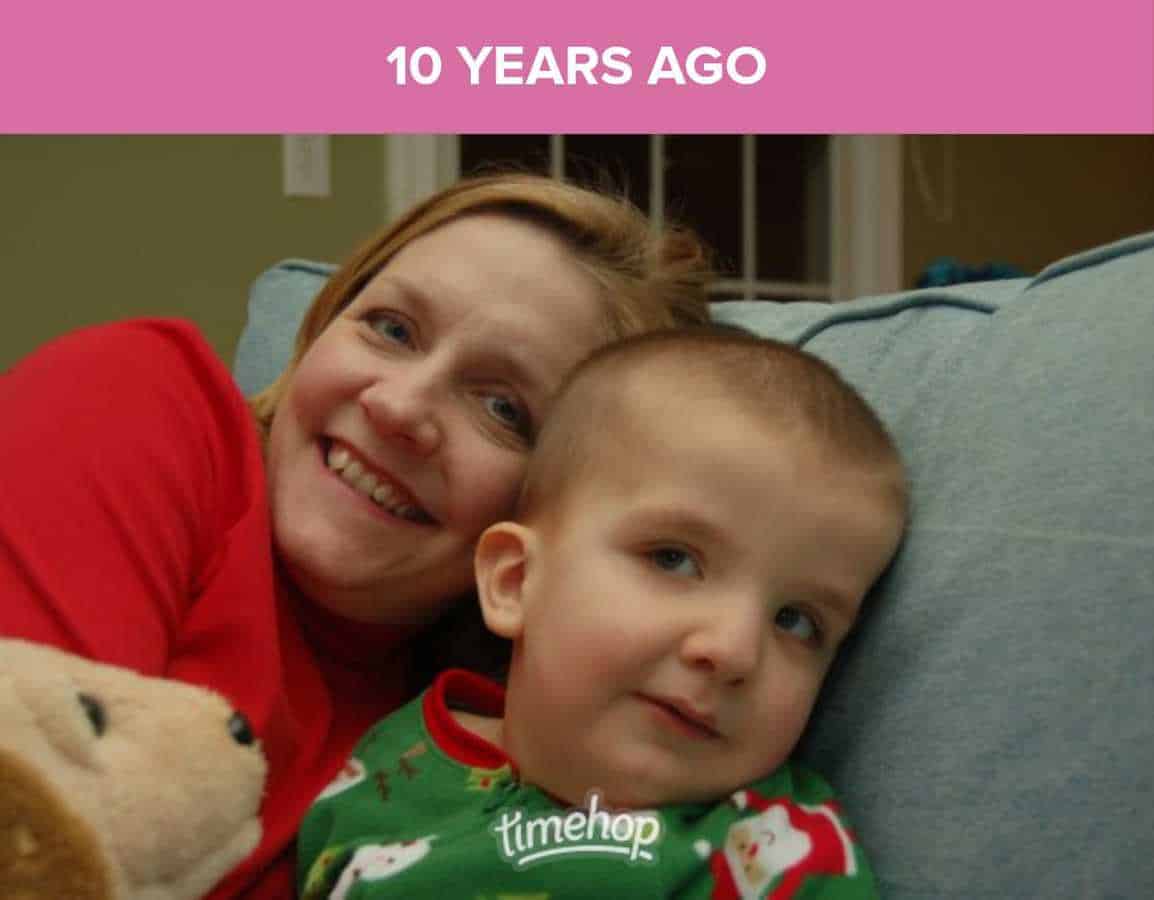I’m Tired of Justifying My {Disabled} Son’s Existence.
I decided today, I am done living life with a disclaimer. Here’s the thing. I’m tired of society making me justify my son’s existence. And I’m tired of constantly adding disclaimers to my conversations.
Always adding a disclaimer.
Here are some real-life conversations I have encountered within the past few weeks:
Conversation 1: Me, complaining about how picky my typical son is when it comes to eating. My friend commiserated. “Yeah, that sucks, so frustrating.”
Conversation 2: Me, complaining about my disabled child’s eating habits. My friend? Totally different this time. It was, “But he is so, so sweet. He has such a great smile. You are so lucky to have him.”
See what happened there? I’m sure it has happened to many of you. When you say something negative about your disabled child, you are either reminded by others of all the positives, or you are asked to share the positives.
And that is what sticks in my craw. I’m never asked what the positives are about parenting my typical child. When I am venting with mom friends (or anyone, really) about him, no one ever says, “Well, surely it’s not all bad! There must be some good things!”
Right? Because with typical parenting, you take the good and the bad.
If you don’t tell us, we’ll assume it’s all bad.
But, with parenting a kid with a disability it’s assumed it’s all bad unless stated otherwise. And heaven forbid you complain or vent about something. Then we get all the cliches.

This is what happened in my Facebook group: someone doing a research paper for school wanted to share the challenges of parenting kids with disabilities. Fair enough, and she got lots of responses to work with. (I considered deleting the original thread, only because I feel it’s rude to treat parents of kids with disabilities like some type of specimen or science experiment to be studied. But I let it go since many parents felt comfortable responding).
She got a lot of responses, then a few days later, followed up with: “I had a classmate suggest I add to my paper about how children with disabilities make our lives better. I agree I don’t want to just talk about the struggles. I also want to highlight how these kiddos brighten our days.”
On the surface, it seems innocent enough, right? And I have no idea if said classmate is also a parent of a child with a disability or not. But the message is there: If you do not tell us there are positives in your life with a disability, we will assume it’s all negative. We’re not allowed to talk about the struggles unless we balance it with some positivity, right?
For this specific thread in a group, perhaps I am reading into it too much. But, overall, I stand by my assertion this is something that is often expected of us who have disabled children — you have to remind us of the good things. I’m not asked that of my typical child.
For those of you who have both disabled and non-disabled children, really think about this. Think about how often we are asked to justify our kids’ existence. No one ever says to me about Brian the things they say about Kevin. With Brian, he’s allowed to just be. People assume with parenting him, there are ups and downs, good times and bad, and just roll with it.
With Kevin, notsomuch. You know what? Parenting is hard, disability and regular. Sure, having a disabled child brings with it different and more challenges that other parents do not have. But why do we assume those extra challenges all but eliminate all the good things about parenting?
I came to the conclusion today that I am done.
The bright spots are there. I see them. Lordy, believe me, I see them. I don’t need to be reminded, nor should I have to remind you, that parenting a disabled child is not all bad. I know people are just trying to be nice. But just stop for a moment and ask yourself, “Would I ask them this same question about a different child?”
If you want to assume the worst, that’s on you. I’m tired of explaining myself. I’m out of f*cks. {Related: I just finished reading “The Subtle Art of Not Giving a F*ck.” I highly recommend it.}
Not everything we do is disability related.
Kevin’s entire personality isn’t built around his conditions. He is who he is because that’s who he is. My guess is he would be the same sweet kid even if he ate everything I put in front of him and didn’t have multiple seizures a day. His sweet personality doesn’t necessarily make the negatives of his disability (seizures) any more tolerable.

By the same token, Brian has a really sweet personality, too. Meal times are still a nightmare around here due to his picky eating.
Yet I’m never asked how Brian “makes my life better.” I’m never asked to quantify or justify his existence. I’m never asked to share how Brian “brightens my days” yet with Kevin, it is expected of us. Often.
We do have extra struggles. It is hard. But our kids are just kids, first and foremost. And to assume they bring nothing to the planet besides struggles is a real shame. If I complain about something, it’s not because I have forgotten that I love my child. It’s not because I don’t know of a positive thing he has done.
And lordy, I am not looking for advice.
All people want is validation. If I’m having a bad day and am venting, the last thing I want is advice and contradictions about what I am saying. It’s ok to just nod and say, “that sucks.”
Author’s note: Yes, you may have seen this post before. It was recently updated and republished.


